
The Free Press

On a recent Thursday night inside Comedy Mothership in Austin, about two hundred earthlings are awaiting their human leader.
One flew straight from Chicago this morning just to wait in the standby line. Another is here to celebrate her birthday, hoping to turn 23 in the presence of her idol. A visitor from England is fighting jet lag to glimpse the man who speaks into his ears up to three hours a day.
Since this UFO-themed comedy club opened two months ago in the Texas capital, nearly every show has sold out. But tonight is a rare occasion, because the man behind it is about to appear. So when the stage—built to look like the flashing underbelly of an alien ship—lights up red, a twentysomething to my left, wearing a bolo tie and glasses, starts clapping like a seal.
Then he screams: “Joe fucking Rogan.”
Suddenly the comedian turned MMA commentator turned Fear Factor host turned most famous podcaster on Planet Earth—and possibly the entire known universe—bursts through the blue velvet curtains, his bald head shiny under the stage lights.
Rogan speaks over the applause to get into his first crack—a poke at how the media has covered the Mothership. His favorite, he says, was an article that described the joint as an “anti-woke comedy club.”
“Anti-woke,” he scoffs, his eyes wide in disbelief. “Isn’t that just comedy?”
The audience roars with applause.
Rogan’s riffing on getting Covid—“Imagine if I died,” he says, “I talked so much shit” about the virus—and ragging on the notion that men can get pregnant elicits vigorous nodding and cheers.
I wasn’t allowed to photograph or record Rogan, or the four other comics who are performing, I’m told, so that they could try out new material without risking online backlash. That gave them freedom to follow in Rogan’s free-range footsteps—which they did, to the delight of the crowd, with jokes about subjects like Lia Thomas, the Ivy league swimmer who took home an NCAA title as a trans woman, thongs, guns, and abortion.
One comic burst onto the stage, breaking through the applause to announce: “Austin, Texas, is now the center of the universe.”
Rogan extends a hand out from the fog of marijuana and cigarette smoke. We’re in the green room, between the 7:30 and 10:30 p.m. shows. “Hey,” he says, with the grip of someone who is a double Brazilian jiu-jitsu black belt.
There are a half dozen comics around eating tacos, reviewing material. Rogan runs to turn down Sister Nancy’s 1982 dancehall song, “One, Two” on the sound system.
I ask him if the place has a mission—a guiding mantra.
“Yeah, it’s there on the wall,” he says, pointing to a red neon sign by a stage door that reads, “Get it together, bitch.” It’s what his friend Joey Diaz, a comic known for his brash style and thick Jersey accent, used to say before every set.
“You would be backstage, getting ready to go, and he’d be like, ‘Get it together bitch. Shock these motherfuckers,’ and he would start shaking and moving around,” Rogan explains to me. “And you’re like, ‘All right, let’s go.’ ”
Rogan tells me that the kind of comics he’s putting up aren’t afraid to touch what he calls “third rail stand-up.” And that’s what he lives for. “When people do risky subjects, it’s my favorite shit,” he says. “We don’t do it as an alternative to comedy. We do it because that is comedy.”
The Mothership, says Rogan, represents his “take” on L.A.’s Comedy Store—the club known for launching the likes of Richard Pryor, David Letterman, and Robin Williams, and the place that gave Rogan his first shot at the mic. He says his vision is to build a club “set up for comedians,” with a strong open mic program that won’t throw performers under the bus for their material.
Which sounds like a low bar. But, then again, this is 2023: by now we are used to clubs and networks canceling acts. In 2018, ABC canceled Roseanne Barr’s eponymous sitcom within hours after she tweeted that a senior Obama adviser looked like a Planet of the Apes “baby.” In 2019, Saturday Night Live cut comedian Shane Gillis before he’d ever even appeared on the show because of how he once described New York City’s Chinatown on a podcast. Last year, a Minneapolis comedy club refused to book Dave Chappelle over his previous material regarding trans people.
All three of these comedians have performed at the Mothership in the two months it’s been open.
Hence, the strict no-phone policy at the Mothership: before guests can even set foot in the lobby, they have to lock their devices in a sealed bag. Not all clubs do this, including The Comedy Store—and, as a result, that venue is “missing out on a huge opportunity to put people in a fully immersive experience,” one Mothership comic told me.
Right before the 10 p.m. show, four friends are outside, discussing the earlier set.
“I’m a big believer in the freedom of choice and expression and all this stuff,” says one guy, an Austin entrepreneur, who declined to be named. “I don’t think that, whether something is a little provocative, people need to get up in arms about it. That’s one of the things I love about Joe Rogan—he pushes it.”
His friends, Stephanie Young and Andrew Landkammer, nod eagerly, their faces illuminated by the Mothership’s neon green marquee. “We all found ourselves shaking our heads, agreeing with a lot of what they said, but we came to laugh—not to get offended by anything,” says Michael Harrell, a forty-something local realtor.
I ask the group if they feel the same freedom to joke about anything that the comedians exercise onstage.
“No.”
“No.”
“No way.”
“No.”
“That’s why these shows are refreshing,” Harrell says.
“We’re just trying to make it a great creative space for stand-up, almost like a laboratory, like the best place to develop material,” Rogan tells me. It doesn’t hurt that Rogan pays well, by all accounts. Deric Poston, a former Comedy Store doorman-turned-comic, tells me: “I’m fucking rich now.” He clarifies: “I have Whole Foods money.”
Rogan goes on: “The more the new people kill, the more the people that are above them get better, and we all get better. Iron sharpens iron in comedy. When you’re around all these killers, it’s like everybody gets better.”
Tonight’s would-be killers include Fahim Anwar, another Comedy Store alum, and Tony Hinchcliffe, who hosts the live improv podcast Kill Tony, which has almost 460,000 followers on YouTube. He leans over with a cigarette to catch a light from fellow comic Brian Simpson, who earlier won over the crowd with a riff about his girlfriend’s transcendental fellatio technique.
Hinchcliffe, 38, counts The Comedy Store and the Comedy Cellar, in New York, as “the best clubs in the world.” Except for the audiences.
“The crowds that you get come from the cities that they’re in, and New York is insanely liberal, and L.A. has gotten insanely liberal,” he tells me.
The Comedy Store, where many of tonight’s comics got their start, used to be “considered the darker, edgier club in the country, until this place was built,” according to Hinchcliffe.
Looking up from his notepad, Anwar adds: “People kind of know what they’re getting into when they walk through the doors of the Comedy Mothership.”
Besides the phone thing, I’m told there’s only one other rule: Be funny.
“That’s it,” Rogan shrugs, before launching into the type of half-philosophy, half-comedy, rant-against-the-machine that made him equally, and extremely, famous, rich, and influential. “And if we can be funny with some shit that you do not think should be funny, then that’s wonderful, then let’s explore this. Let’s find out, what is that? Like, what’s going on there? What’s up with that subject that everybody’s scared of it? Are we in a fucking cult? You know, when you start believing things that you inherently know are not true but you say them and repeat them because the cult wants you to do it—this is something you can exploit in stand-up comedy, and that’s what stand-up comedy is all about. It’s all about that.”
“I’ve got to kick you out,” Rogan says, surveying the melting ice cubes in his whiskey. “It’s almost showtime.”
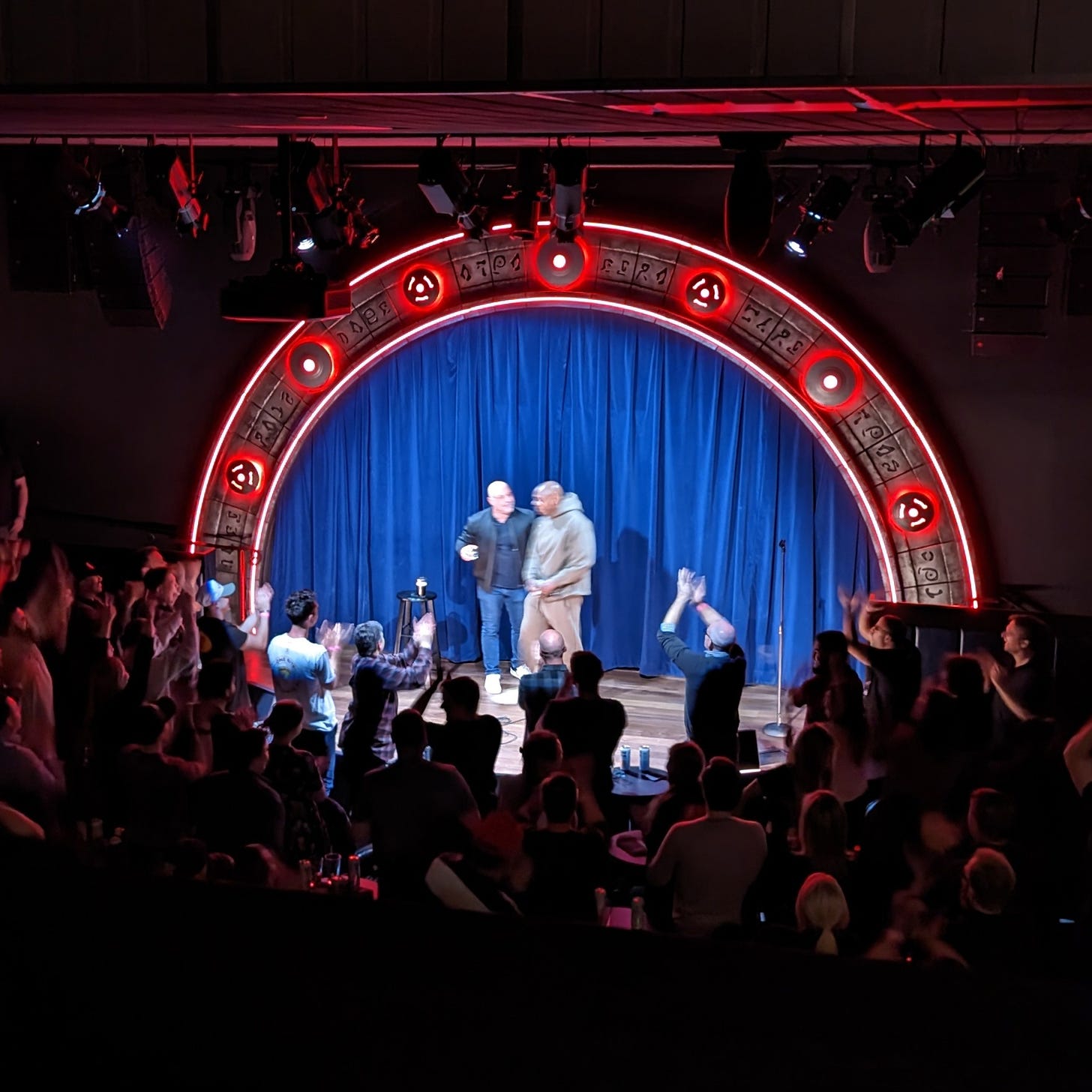
In 2009, Rogan—then a stand-up comic, but once a tae kwon do champ from Boston who moved to Hollywood in the ’90s and never left—launched a podcast.
Originally called Joe Rogan Live, Rogan filmed it from his L.A. office with longtime friends Diaz and Brian Redban. Their broadcasts could sometimes last hours and were not beholden to the FCC’s restrictions on profane language or content, meaning Rogan and his crew could pave the way for a new kind of comedy, bolstered by the freedom of the internet. Soon, he was routinely ranked number one on platforms like Apple and Spotify.
In the run-up to the 2016 presidential election, the show—by then renamed The Joe Rogan Experience—caught fire as one of the last places audiences could turn to for open discussion. While half the country tuned in to Fox News and the other half to MSNBC, Rogan, an advocate of both the social safety net and gun rights, provided a safe space for the politically homeless. Audiences delighted in his ability to rub elbows with titans like Elon Musk, who famously smoked weed on the show in September 2018.
By the next election cycle, he was an accidental kingmaker—a place then-presidential hopefuls Sen. Bernie Sanders, Rep. Tulsi Gabbard, and entrepreneur Andrew Yang went to reach millions of Americans.
Meanwhile, a cultural shift was brewing, with audiences beginning to turn on comics. First, the backlash was largely happening online. When the #MeToo movement hit, digital sleuths began digging up old clips of comedians making jokes they found distasteful. Slate unearthed Louis C.K.’s riff about a town child molester from a Saturday Night Live monologue in 2015, calling it “downright disturbing.”
But by 2020, the year the pandemic broke loose, Rogan was starting to complain that Los Angeles—the city where he’d built his comedy career—was grating on him. Despite trying to build a sanctuary in the Valley, outfitted with saunas, cold plunges, and a sensory deprivation tank, he felt the chaos seeping in.
“People in Texas are friendly,” he said on a podcast before making the jump. “They’re what I would want America to be like. They’re cordial. They hold doors for you. They say ‘good morning.’ They look you in the eye. They’re smiley.”
As homelessness rose in Los Angeles and businesses shuttered under some of the country’s toughest Covid restrictions, Rogan began talking about Texas as a promised land, where taxes were low and no one was forced to wear a mask.
By the summer of 2020, Rogan was saying Los Angeles was “not tenable.”
“When you look at the traffic, when you look at the economic despair, when you look at the homelessness problem that’s accelerated radically over the last six, seven, ten years, I think there’s too many people here,” he said.
Many Californians agreed—in 2020, one out of every ten new Texans, including the Rogans, were Golden State escapees. That fall, he’d be installed in a mansion on the shores of Lake Austin with his wife and two daughters, fresh on the heels of a blockbuster deal with Spotify.
The Swedish music platform reportedly paid the entertainer $200 million to broadcast his show exclusively—including the thousand-plus episodes that had already run—on their platform. Meantime, other prominent comics faced increasingly intense backlash for their work.
In October 2021, Netflix staff staged a walkout over Dave Chappelle’s special The Closer, in which he compared trans identities to “blackface.” Then things got violent. Last year, a man assaulted Chappelle during his set at the Hollywood Bowl, tackling him on stage with a switchblade shaped like a gun. And even a softball joke by host Chris Rock at the 2022 Oscars, lobbed at Jada Pinkett Smith’s hair, sparked a smack from her husband, Will Smith.
This culture creates a “horrible environment for young comedians,” according to Bridget Phetasy, a 44-year-old comic who moved from Los Angeles to Austin this month to be part of Rogan’s budding scene.
“You have to mess up so often in order to get to a good joke,” says Phetasy, who spoke to me while unpacking boxes on her second day in town. “Yet we’re living in a time where, if somebody takes video of you and you’re trying to work out a joke that isn’t quite there yet, and it goes viral, now you’re labeled as transphobic or homophobic or sexist or whatever. It’s not fair.”
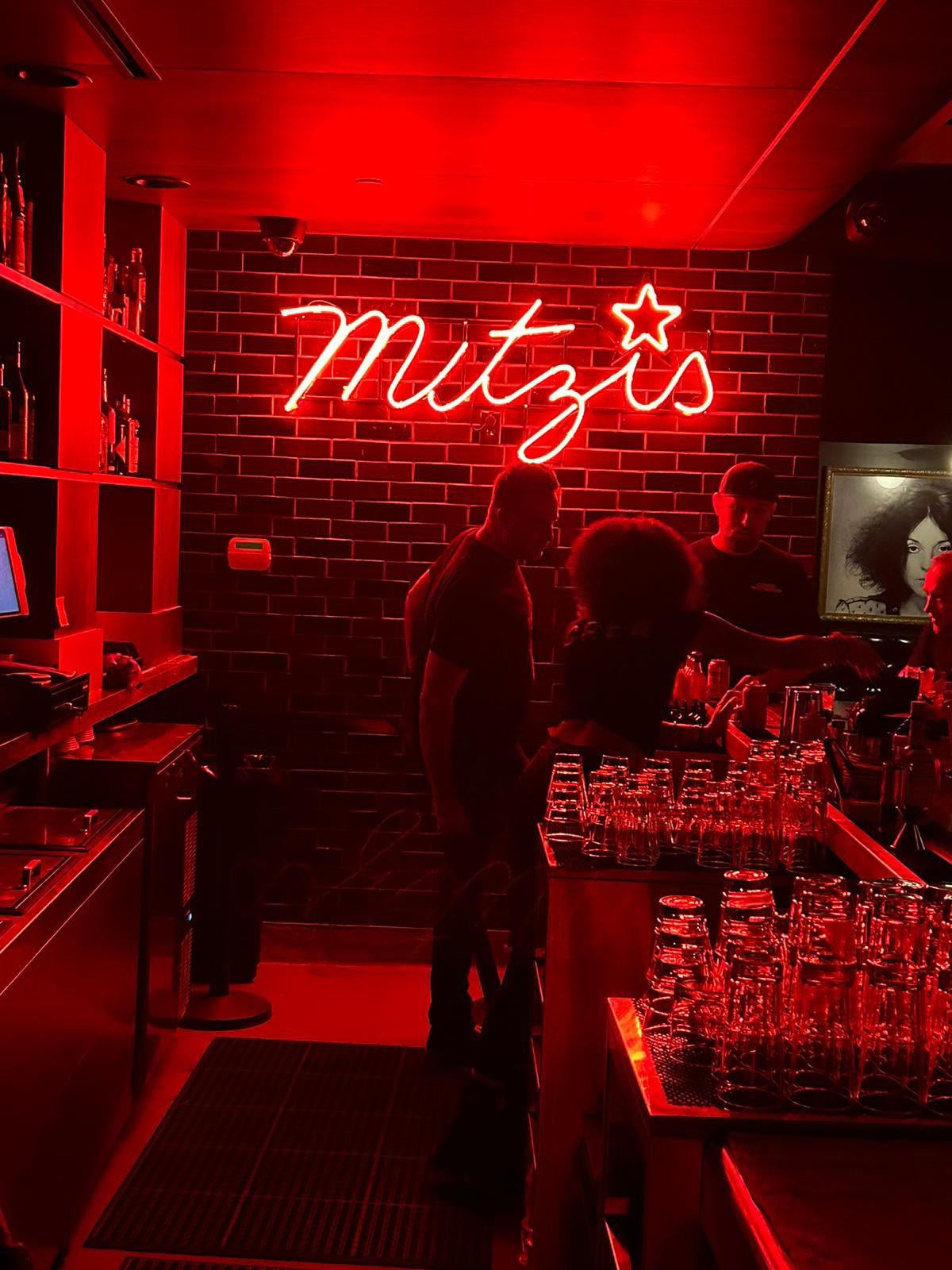
In 2022, Rogan bought The Ritz, a historic theater in his new city’s downtown that had seen better days. He paid an estimated $1 million to restore it, applying the lessons he picked up from three years of touring to get the sound “perfect” and make the downstairs bar, Mitzi’s, worthy of its namesake, The Comedy Store’s late owner Mitzi Shore—“my mentor,” Rogan called her.
On March 7, 2023, the Mothership finally landed.
He was in good company. In the two years that it took Rogan to build his club, Austin had transformed from a “one comedy club town,” in the words of one venue owner, to a kind of mecca. On “Dirty 6th” alone, the downtown strip where the Mothership is located, as many as a dozen comedy joints opened, including Vulcan Gas Company, which pivoted from musical to comedy acts, and The Creek and the Cave, a club that owner Rebecca Trent moved from downtown Queens, New York, at the height of the pandemic.
In New York, The Creek and the Cave was a “break even club,” Trent told me. “Now, this is a very different business model,” she said. “This has investors. We have meetings.”
She says most of their New York shows were free to attend. Now, she charges as much as $55 to get into her venue, which is just three blocks away from the Mothership.
Some Los Angeles-based comics, like comedian husband and wife Tom Segura and Christina Pazsitzky, and Brian Redban, Rogan’s former producer, moved along with Rogan, forfeiting their regular spots at The Comedy Store and the Comedy Cellar, the seminal New York comedy club, to build an alternative empire in central Texas.
“Joe Rogan is a literal force of nature,” Phetasy told me. “He’s like a sun or a planet that has its own gravity.”
Tony Hinchcliffe, who moved from Los Angeles, the city that made him, to join Rogan two years ago, says “This is where every comedian that has real jokes and real raw talent wants to be.”
I caught him between sets at the VIP booth in Mitzi’s. “It’s an outlet, an opportunity to vent crazy shit. And the audiences that are coming here expect that,” he tells me.
Deric Poston, the former doorman, says Austin is where the purists now come to get serious about their craft. “There’s nothing else here. You’re not coming here to get in a movie or a TV show,” Poston says, saddling up to the table at Mitzi’s. “You’re only coming here because you love stand-up, you believe in Joe and what he’s trying to build here.”
Others, like comic Tim Dillon, who likewise came to Austin in 2021 after “quarantine had warped everyone’s minds” in California, have come down from the hype.
“It’s a town of breakfast tacos, college kids, tech sociopaths, and God bless everyone who enjoys it,” Dillion said as a guest on a podcast last year. “It wasn’t for me. I hated it, and I was vocal about it.”
Six months into his Austin journey, he called it quits. But now, he tells me, the Mothership “is changing my experience” of the city.
“Joe’s club is so good,” the 38-year-old comic says. “It’s making me like Austin even though I tend to have spoken very openly about my disdain for it as a place.”
Then he adds: “Joe Rogan has made Austin the most interesting place to do comedy in America. That’s a fact. Because what he’s done has created the conditions for people to be excited—both comics and audiences.”
He tells me he’s “warming towards” Austin.
Then he pauses: “Slightly.”
To read more stories by Olivia Reingold click here. And while you’re at it, spend a little time checking out our homepage: thefp.com. For the next two weeks, we’re piloting a section called “What We’re Reading.” There, you’ll find all the most interesting news of the day, plus whatever strange things are rattling around The FP group texts. Enjoy.
And if you want to support our journalism, become a supporter today:


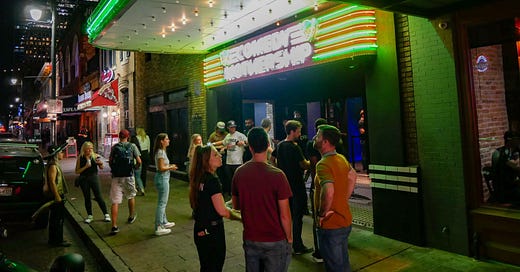



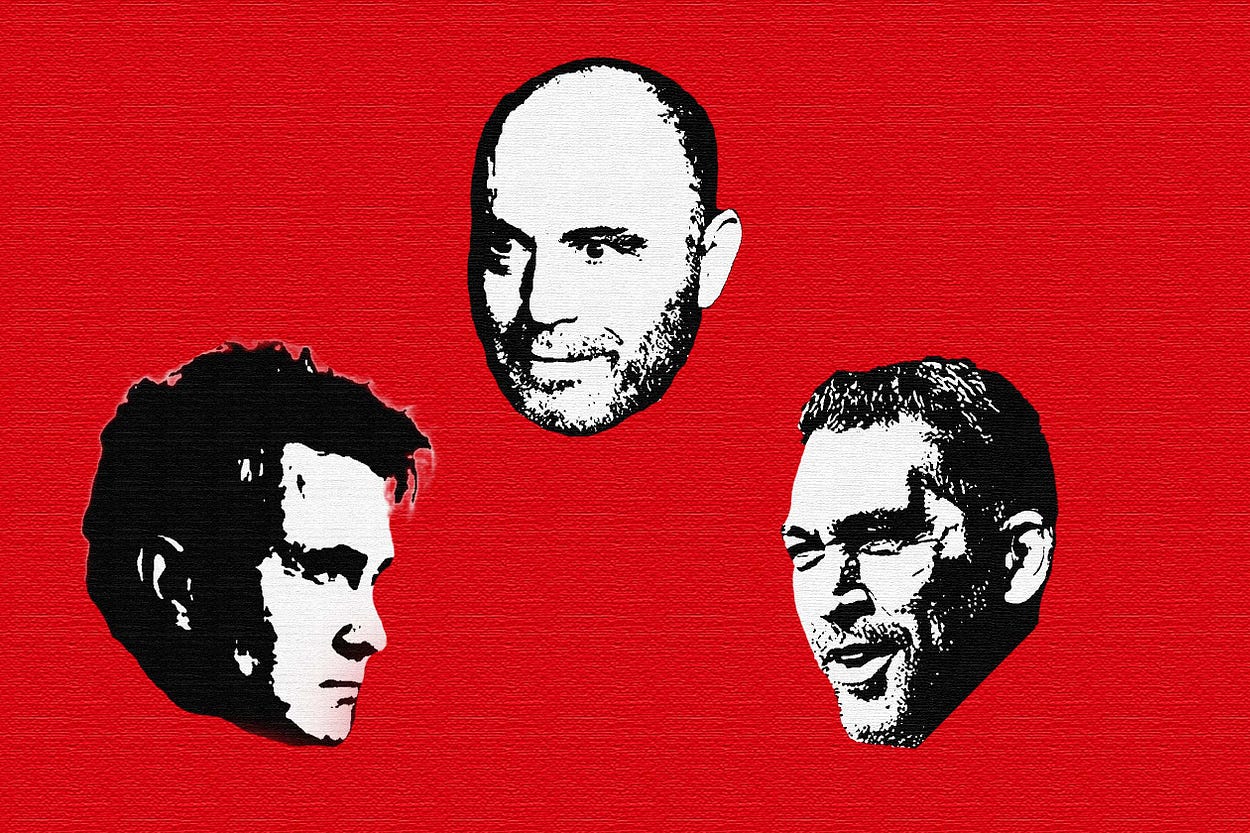

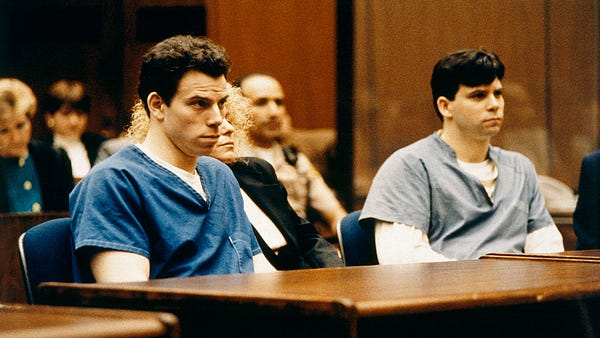

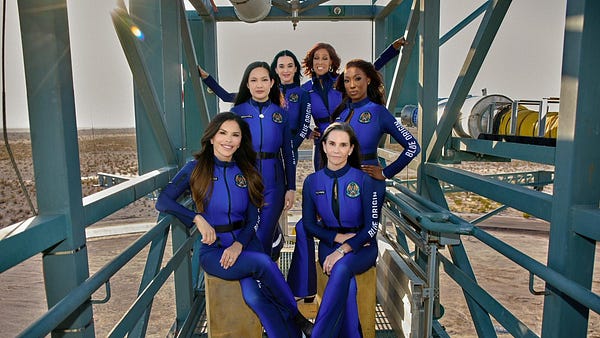

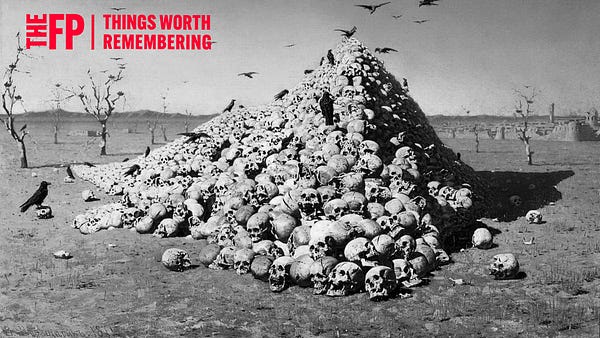


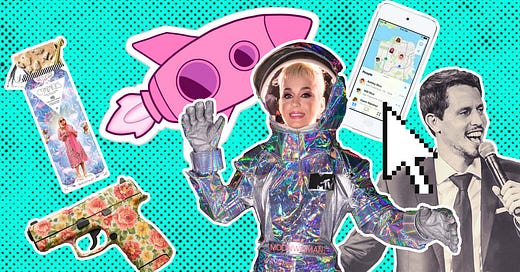
How does all this comidy affect the music scene in Austin?
And here I thought the requirement to be a comedian was that one be funny. Shows how old-fashioned and out of touch I am, I guess.